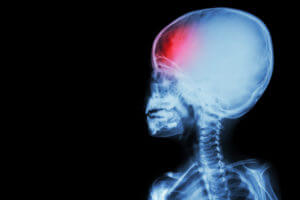Parkinson’s disease is a progressive disorder that primarily affects movement and requires long-term treatment. It occurs when neurons in the brain producing dopamine — a chemical responsible for smooth and coordinated muscle function — are lost. Common Parkinson’s disease symptoms include shaky hands or tremors, slow movement, rigid muscles, and balance issues. People often experience
Read MoreAssociates in Neurology
Parkinson’s Disease Treatments for Early Stages
Parkinson’s disease is a progressive disorder of the human nervous system that primarily affects movement. For patients recently diagnosed with this condition, the early stages can feel overwhelming. However, understanding available treatment options can empower you to manage it effectively and maintain your quality of life. Let us explore the treatment options available for the
Read MoreMild vs. Stress Headache Treatment: What is the Difference?
Headaches are a widespread condition that affects individuals of all ages. They can range in intensity from mild discomfort to debilitating pain, often influencing daily activities and overall quality of life. Among the many types of headaches, mild headaches and stress headaches are frequently experienced by numerous people. Understanding the differences between these types and
Read MoreEffective Epileptic Seizure Treatments Near You Today
Epilepsy affects over 65 million people worldwide and is characterized by recurrent seizures. These sudden and unpredictable episodes can significantly impact an individual’s daily life, affecting their physical, emotional, and social well-being. With such a prevalent condition that can strike at any moment, finding effective epileptic seizure treatment options is crucial for those living with
Read MoreRelief for Severe Headaches: Trusted Options Nearby
Living with severe headaches can be incredibly challenging. For those who suffer from migraines, the throbbing pain, sensitivity to light, and nausea can disrupt everyday activities. If you are among the many who struggle with severe headaches like migraines, you have likely searched for relief options. Fortunately, there are trusted severe headache treatment options available
Read MoreHow Botox Can Treat Severe Headaches
Living with frequent, severe headaches can feel like an endless battle. For many, it is more than just a little discomfort—without proper severe headache treatment, it is a life-altering condition that disrupts work, family time, and even simple daily activities. If you are one of the many migraine sufferers out there, you might be desperate
Read MoreCerebral Palsy Treatment: Improving Mobility and Strength
Lack of mobility and muscle strength can be a huge obstacle for individuals with cerebral palsy. This neurological disorder, which affects movement and coordination, can greatly impact day-to-day activities such as walking, writing, and even sitting up straight. While there is no cure, there are various cerebral palsy treatment options available that focus on improving
Read MoreHow To Tell Someone Is Having A Seizure
Seeing someone having a seizure can be a terrifying experience, especially if you don’t know what to do. Learning its signs and symptoms and what to do keeps you better armed in case you see somebody, like a loved one, experiencing a seizure. Epilepsy is a neurological condition that causes seizures, and as many as
Read MoreHow To Get Rid Of Dizziness
Dizziness is a very common issue and can be the symptom of a variety of conditions. By the time you reach adulthood, it is very likely that you know first-hand what it’s like to have a dizzy spell. It can be described as feeling lightheaded, disorientated, or unsteady, as if your surroundings were spinning. It
Read MoreTypes of Seizures Common Among Children
A seizure occurs when there is a surge of electrical activity in the brain that causes symptoms such as jerking movements, a stiffening of the body, falling suddenly, and loss of consciousness. Epilepsy is a neurological disorder used to describe having two or more seizures, and while it is much more common in adults, it
Read More











